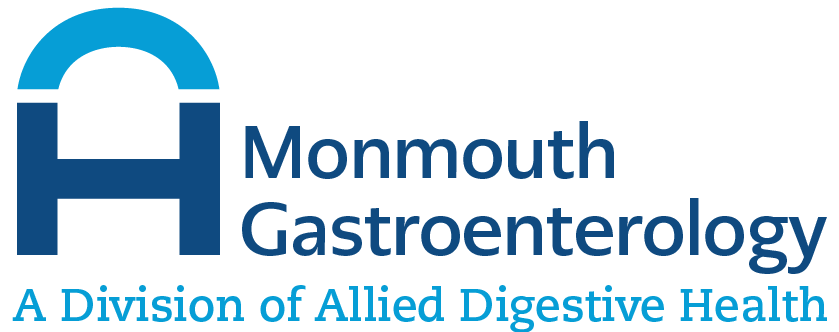What Is Proctitis?
The digestive tract extends from the mouth to the anus. The lowest end of the colon (large intestine) is called the rectum, which leads to the anus. Proctitis refers to an inflammation in the lining of the rectum (rectal mucosa), which can cause rectal pain and bleeding. Proctitis is relatively uncommon, but if it is left untreated, it can lead to more serious health complications and discomfort.
Am I At Risk for Proctitis?
There are many risk factors and causes when it comes to proctitis. Proctitis can be chronic, with long-term symptoms, or acute, with symptoms that last a short period of time. Some of the more common causes of proctitis include:
- Sexually transmitted diseases (STDs). This is one of the more common reasons proctitis can develop. Sexually transmitted diseases can be passed through anal sex, such as gonorrhea, chlamydia, syphilis, and herpes. These STDs can cause proctitis to occur. In patients with HIV and herpes, proctitis can be very severe.
- Other types of infection. Proctitis can occur from infections other than STDs. Foodborne bacteria, such as Salmonella and Shigella, can cause it, and Streptococcal proctitis can occur in children who have strep throat.
- Antibiotics. While antibiotics are designed to kill off “bad bacteria,” sometimes they can kill good bacteria as well. When this happens, bacteria such as Clostridium difficile can form, causing the condition.
- Anorectal trauma. Anal sex or objects inserted into the anus can cause rectal irritation.
- Inflammatory bowel disease (IBD). Patients with an IBD diagnosis, such as ulcerative colitis (UC) or Crohn’s disease, are susceptible to proctitis. UC occurs only in the colon and rectal area, while Crohn’s disease can flare up anywhere on the digestive tract.
- Radiation. Patients who have received radiation in the pelvic region are more prone to developing proctitis.
What Are the Symptoms of Proctitis?
The most common symptom of proctitis is a sudden and uncomfortable urge to make a bowel movement, also known as tenesmus. Other symptoms may include blood in the stool, bleeding from the rectum, diarrhea or frequent loose stools, a feeling of “fullness” after voiding the bowels, anal or rectal pain, rectal discharge, and abdominal pain. Symptoms are typically noticeable and can range from mild to severe. Any change in bowel habits should warrant a visit to your healthcare provider, but if you’re experiencing symptoms such as rectal bleeding or blood in the stool, you should consult your gastroenterologist as soon as possible.
How Is Proctitis Diagnosed?
Before your physician performs any diagnostic tests, they will want a patient consultation, physical exam, and medical history. The medical history will include questions about past and present sexual activity, as STDs are a common cause of proctitis. Your healthcare provider may want to test you for STDs before they run any other diagnostics. Tests that can confirm a diagnosis of proctitis include:
- Rectal culture. Your gastroenterologist will insert a swab into your rectum to obtain a sample for testing.
- Flexible sigmoidoscopy and colonoscopy. While the prep for these two tests is similar, a sigmoidoscopy can examine your anus, rectum, and lower part of the colon, while a colonoscopy can look at your entire large intestine.
- Anoscopy. The physician uses a tool known as an anoscope to widen the anus and look in the anal canal and rectum.
What Is the Treatment for Proctitis?
Like many gastrointestinal disorders, the treatment for proctitis varies widely, depending on the cause of the inflammation. If an STD infection caused it, antibiotics are typically prescribed, and antiviral medication is used for STD treatment. While not all STDs can be cured, symptoms can be arrested to prevent further inflammation.
If the proctitis was caused by a non-STD infection, antibiotics are still first-line therapy in addition to any treatment that can cure the infection.
If antibiotics cause proctitis, it is often treated with a different antibiotic. Anorectal trauma proctitis is often treated with over-the-counter nonsteroidal anti-inflammatory drugs (NSAIDs), such as ibuprofen or aspirin. Your physician will also recommend avoiding anal sex for up to six weeks.
Radiation proctitis can be a bit more challenging and may be treated with thermal therapy using sigmoidoscopy or corticosteroid enemas. Those who have proctitis from IBD will likely be prescribed anti-inflammatory drugs as well as corticosteroids to also help manage IBD symptoms, especially during flare-ups. Infliximab is another medication used to help manage IBD symptoms.
Your healthcare provider might also suggest avoiding caffeine, greasy foods, and high-fiber foods either during the course of treatment or as a permanent change as a preventative measure.
What Happens If Proctitis Is Left Untreated?
Complications can occur if proctitis is left untreated, some of which are serious. Anemia (a drop in red blood cell count) can occur, which means less oxygen is delivered to the cells. Untreated proctitis can also lead to severe bleeding, ulcers in the intestinal lining, fistulas, and painful abscesses. If you receive a proctitis diagnosis, take all medications as prescribed and follow your gastroenterologist’s advice. Be sure to schedule a follow-up visit after symptoms have been arrested.

